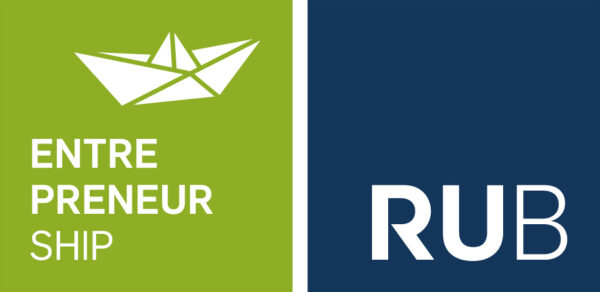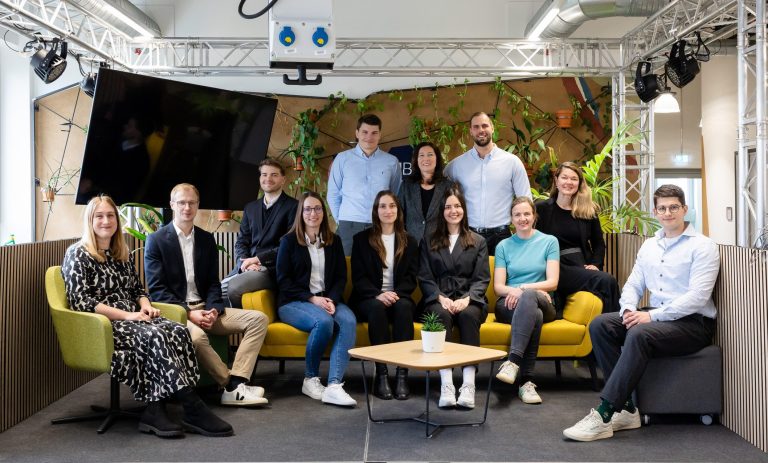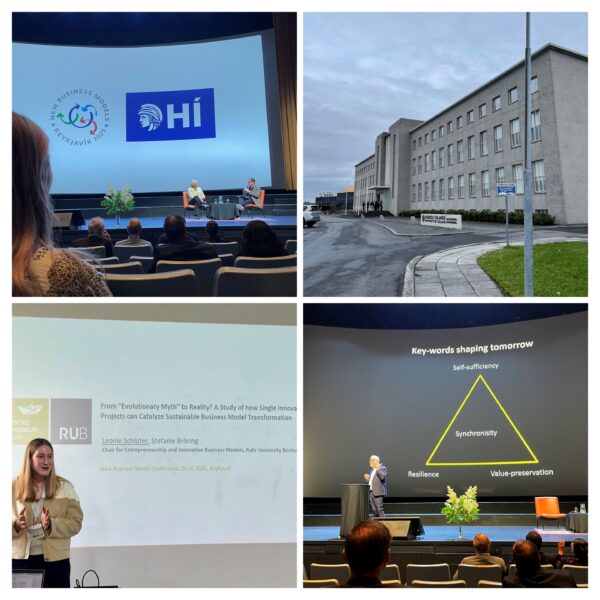Entrepreneurship and Innovative Business Models
About us

Innovations at the boundaries of different fields of knowledge and technology have the potential to enable new technology and innovation systems as well as entirely new entrepreneurial eco-systems. For example, the implementation of the UN Sustainable Development Goals adopted in Paris can only succeed through new technologies and new value chains that enable a more efficient use of resources. Against the background of this motivation, the team of the Chair of Entrepreneurship and Innovative Business Models deals with the entire transformation or start-up process from the emergence of new "Technological Innovation Systems" and the associated transformation of established firms to the identification of entrepreneurial opportunities and the underlying mental models of managers/entrepreneurs.
We aim at closely linking theoretical and practical questions in research and education. Our research projects are based on a wide array of quantitative as well as qualitative methods to analyze management questions in the diverse applications fields.

Team
Teaching
Information on:
Further information on bachelor and master theses are here.
Please contact Lev Kalishchuk (lev.kalishchuk@ruhr-uni-bochum.de) if you are interested in writing your bachelor or master theses with us or have any further questions.
In general, there are two different types of credit recognition:
- If you take a module at a foreign university that is equivalent to one of the modules offered by our chair in terms of content and requirements, you can have it credited as the corresponding RUB module.
- If you take an economics module at a foreign university for which there is no equivalent module at our chair in terms of content and requirements, you can have it credited as a so-called “dummy” module (“(Advanced) Applied Management/Economics”).
Basically, our chair will determine in which form we can credit your module. Students who need credit for a module taken at another university or department for a subject offered by the Chair of Entrepreneurship and Innovative Business Models, please contact Ms. Silvia Oleksakova: silvia.oleksakova@ruhr-uni-bochum.de.
In order to be able to provide information about the credit, the following information is required:
- Your RUB degree (Bachelor, Master, etc.)
- Your exchange type (Erasmus, change of university, etc.)
- Completed application for recognition, available at the examination office
In order to assess the content and level of the non-RUB module, we need the following information about the non-RUB module:
- Name of the module
- ECTS or credits
- Contact/teaching hours (“semester hours per week”)
- Study program to which the module belongs
- Syllabus
- Literature
- WWW link of the module
Teaching offers
Research
Research focus
Research projects
Publications
Ohlert, S., Laibach, N., Harms, R., & Bröring, S. (2025). Opportunity recognition in the tension field of knowledge and learning: The case of converging industries. Journal of Business Research, 186, 114993.
Baum, C.M., Sick, N. & Bröring, S. (2025). Drivers for the emergence of interdisciplinary knowledge areas: An actor-level perspective on building legitimacy for the case of synthetic life sciences. Technovation, 141, 103173.
Kamrath, C., Wensing, J., De Steur, H., & Bröring, S. (2025). Explaining the Intention to Consume 3D-Printed Food via the Food Technology Acceptance Model and Trust Dynamics. International Journal of Consumer Studies, 49, e70081.
Ohlert, S., Laibach, N., Harms, R., & Bröring, S. (2025). Opportunity recognition in the tension field of knowledge and learning: The case of converging industries. Journal of Business Research, 186, 114993.
Baum, C.M., Sick, N. & Bröring, S. (2025). Drivers for the emergence of interdisciplinary knowledge areas: An actor-level perspective on building legitimacy for the case of synthetic life sciences. Technovation, 141, 103173.
Kamrath, C., Wensing, J., De Steur, H., & Bröring, S. (2025). Explaining the Intention to Consume 3D-Printed Food via the Food Technology Acceptance Model and Trust Dynamics. International Journal of Consumer Studies, 49, e70081.
Latest news
Suttner-Nobel Allee 4
(ehm. Opelring 1)
44803 Bochum
Phone:
The chair belongs to the competence field:







